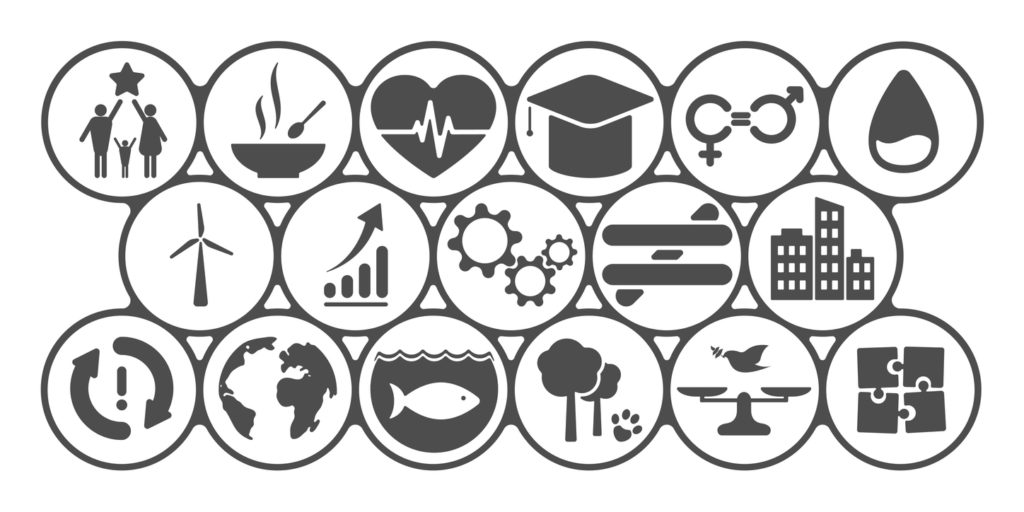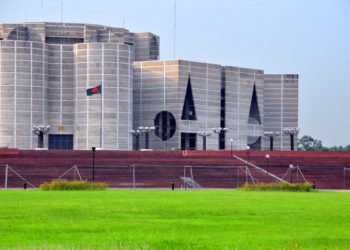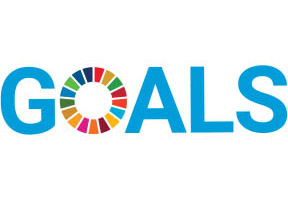Gerald R. Beasley, the Carl A. Kroch University Librarian at Cornell University, has taken a keen interest in exploring and advocating for approaches that academic libraries can take to advance the United Nations’ Sustainable Development Goals (SDGs), and has written particularly about the intersection of the UN’s goals and those of the open access movement. In Part 1 of a two-part conversation, Timon Oefelein (Senior Manager, Strategic Partnerships and Outreach, Springer Nature), asks Gerald what libraries can do to help advance those goals. (In Part 2, the tables will be turned and Gerald will ask Timon what publishers can do.)
Timon Oefelein: What can libraries do to communicate and advocate the SDGs?
Gerald Beasley: Universities are great places for encountering new ideas, and the best place on campus to do that is the library. Every student, as well as every faculty and staff member, should have the opportunity to learn more about the United Nations and its 17 SDGs through the academic library. We can do this by using our websites and public spaces to bring attention to them. The United Nations makes some great graphics available on its website for such purposes.
Additionally, a good way to add more voices in support of the SDGs is to explicitly and publicly advocate for their inclusion in whatever strategy is adopted by your library and its network partners. The International Federation of Library Associations and Institutions (IFLA) has made “the power of libraries in achieving the Sustainable Development Goals” an initiative in its 2019-24 Strategic Plan.

Oefelein: How can libraries support researchers engaged in SDG-relevant research?
Beasley: I imagine there are faculty in every discipline on every campus who are actively working to advance one or more of the UN’s goals. As a first step, it would be good for us to identify these academics and ensure they have our full support. I would like this to be an explicit responsibility of the liaison librarian responsible for that faculty member’s department. Because of the interdisciplinary nature of many SDGs, this may also call for a new layer of attentiveness and cooperation among liaison librarians.
Librarians should also be supported in developing the skills and expertise needed by researchers when they engage in SDG-related research. In addition to timely access to scholarly resources, these include advice, support and resources for research data management, evidence synthesis, statistical analysis, and digital literacy. All of these are professional library skills that have been growing in importance for some time. The UN’s 2021 Report on the SDGs has a long section on “Investing in data to save lives and build back better” which seems particularly relevant in this regard (The Sustainable Development Goals Report 2021. New York, NY: UN Dept. of Economic and Social Affairs, Statistics Division).
Oefelein: How can libraries support Open Access (OA) and Open Science (OS) with a view to facilitating the SDGs?
Beasley: Advocating for OA and OS as ways to facilitate the SDGs is important: see for example the Outcome Document from the Roundtable Discussion on a Global Science Commons at the UN Headquarters in November, 2019. Concrete actions that support OA and OS are however difficult to articulate without substantial faculty buy-in. But librarianship is a reflective practice, and I believe librarians can provide leadership in the transition of scholarly communications away from its period of experimentation – when a thousand flowers are allowed to bloom – towards proposals for OA and OS that adhere to a more rigorous philosophy around important concepts like “open”, “equitable” and “sustainable”. The priorities established by the SDGs provide an excellent framework for that transition. In my view libraries should see OA and OS as outcomes of support for the SDGs, not the other way round.
Oefelein: How and with whom can we partner on campus to progress solutions to the SDGs?
Beasley: A recent OCLC Research Report provides a guide to how and with whom academic libraries can partner to support research on their campuses (see Bryant, Rebecca, Annette Dortmund, and Brian Lavoie. 2020. Social Interoperability in Research Support: Cross Campus Partnerships and the University Research Enterprise. Dublin, OH: OCLC Research). In addition, by partnering with groups outside the library that are also engaged in campus sustainability initiatives, libraries provide opportunities for students, staff and faculty to take initiatives and make progress in their own practices towards achieving the better future envisioned by the SDGs.
Views expressed are the opinions of the author and do not represent endorsement by Cornell University.



